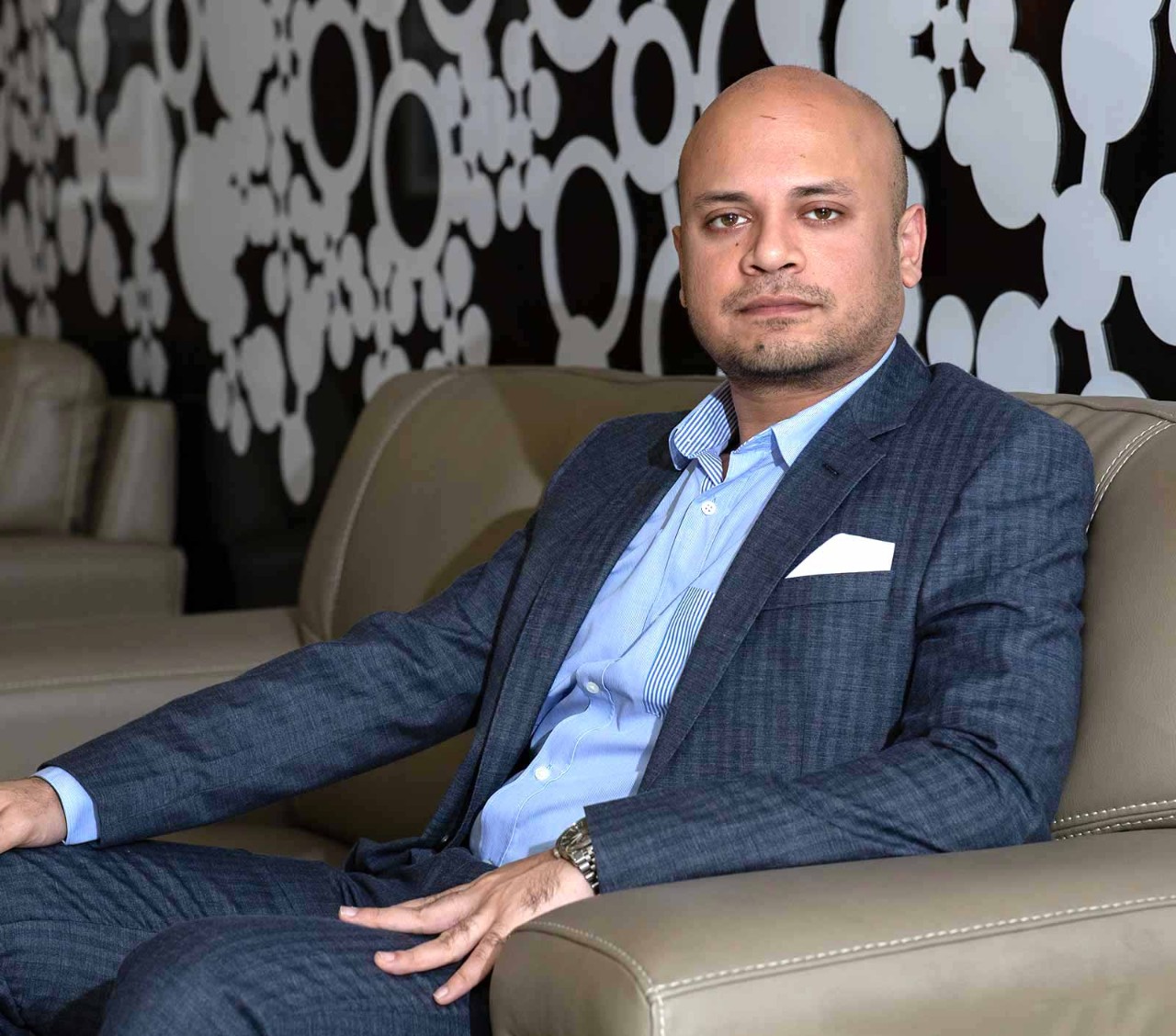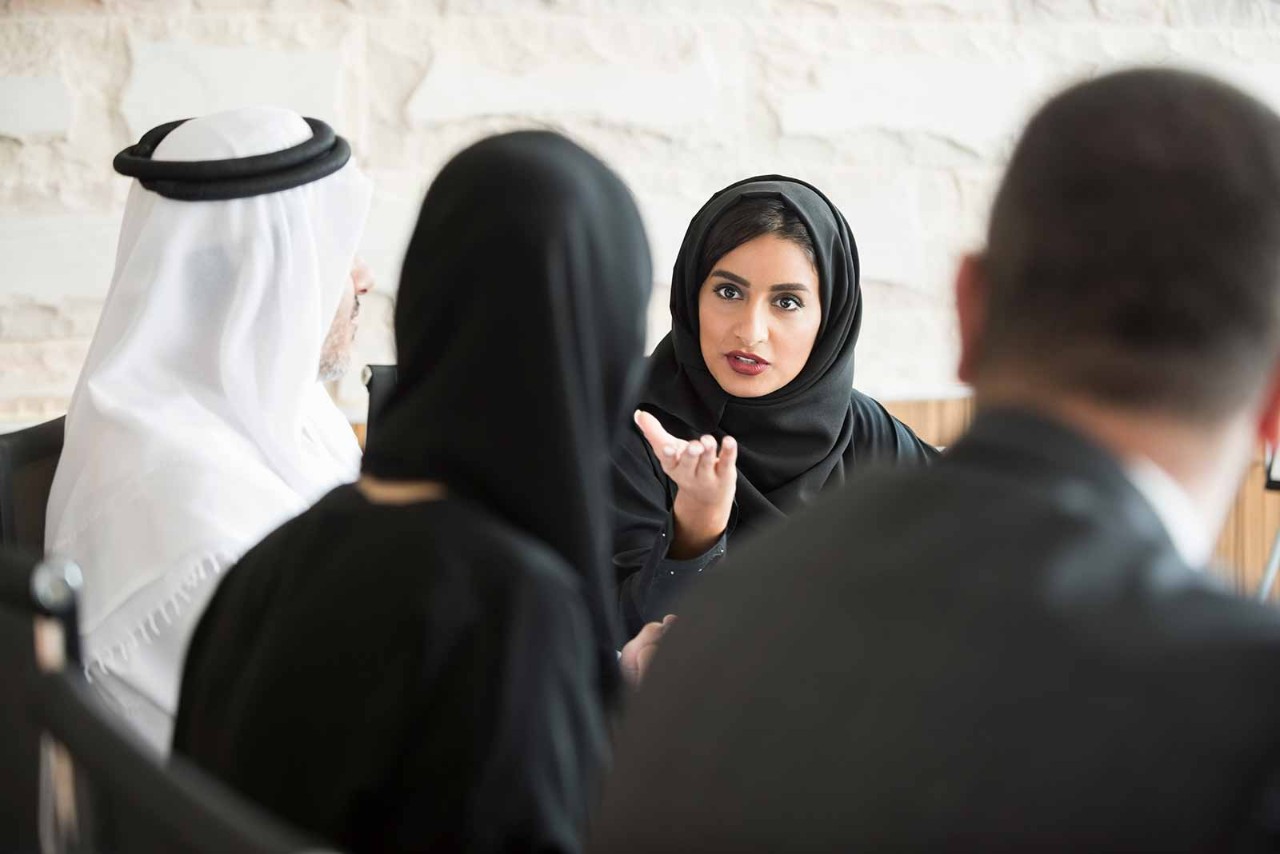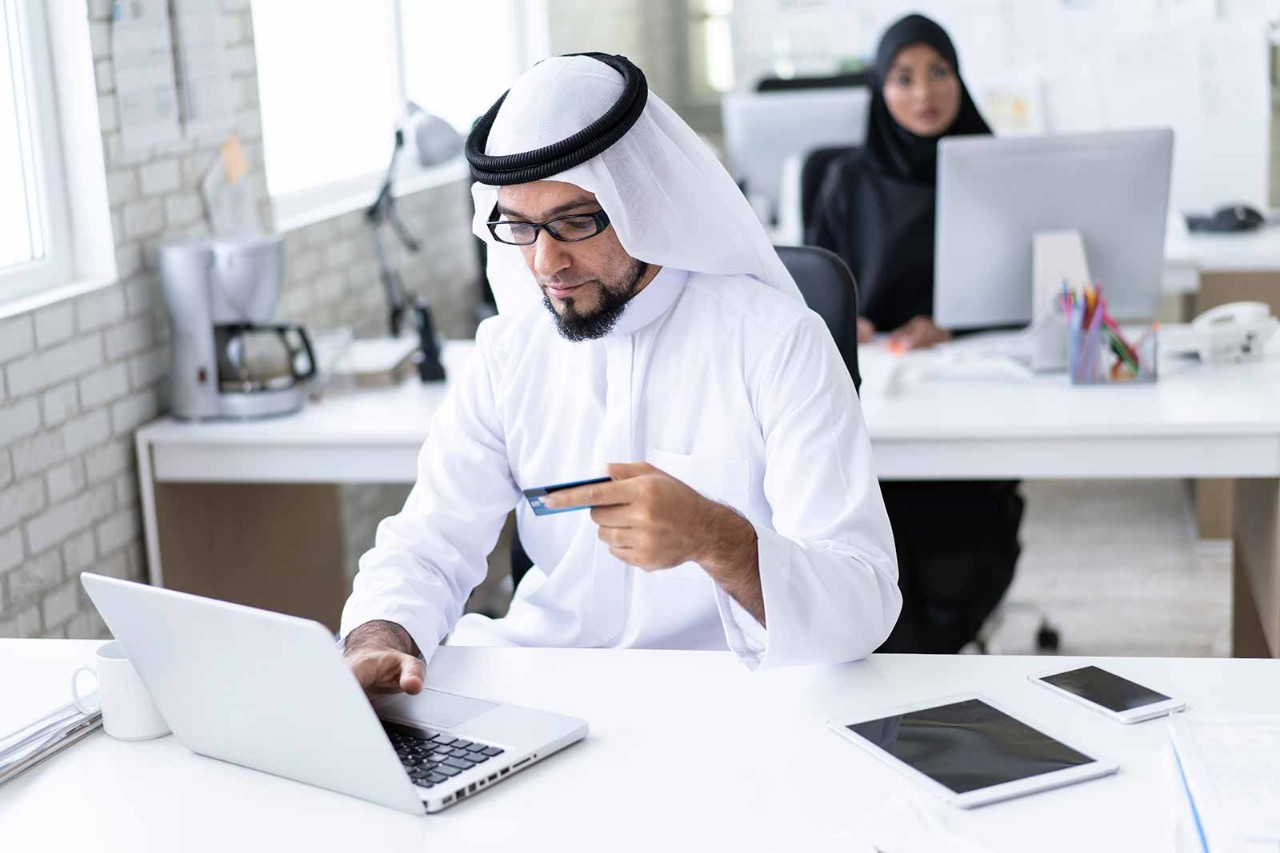
After the uncertainty inflicted on the region by the Covid-19 pandemic last year, alongside an oil price war, accountancy practices in the Gulf region are now looking ahead to see where they can find opportunities for growth in 2021. But as a recent virtual roundtable of senior practitioners from the United Arab Emirates (UAE) and Oman revealed, there are still many hurdles to overcome amid the hidden risks of recovery.

‘To my mind, the number one issue last year was the economic impact of the pandemic,’ says Gerard Rahman FCCA, who focuses on strategy, transformation and culture at BDO in the UAE, having stepped down in January as chief executive. ‘In most of the Gulf, health was managed well. There were clear guidelines, compliance was good, and communications were consistent and clear.
‘However, this could have given us a false sense of security because since the start of this year there has been a growing sense of uncertainty. We had planned for growth, but now we don’t know how the year will pan out. Have we actually seen the worst of it or is there more to come?’
Rahman’s comments were made against the background of rising Covid-19 cases in the Gulf state and further restrictions placed on social gatherings. Open borders had attracted foreign visitors, which would have helped the economy but risked a spike in infections.
For Saad Maniar FCCA, senior partner at Crowe UAE, health is still the top priority, as evidenced by the UAE Government’s vaccine deployment initiative. On the business front, however, he reflects that for accountancy firms the pandemic has meant improvising and adapting to the evolving situation, as the whole audit procedure has had to be overhauled. Evaluating and assessing the risk involved has meant a considerable increase in the amount of time spent on audit procedures, with associated additional costs, he points out.
The challenge for practices now surrounds business sustainability. According to Maniar, the business community can be very fluid and volatile at the best of times – businesses can be started and then wound up very quickly. ‘But there is the risk of going concern for auditors,’ he says. ‘We sign the audit opinion at a given date, indicating that the business can continue for the foreseeable future, and therefore auditors have to really scrutinise the facts to maintain overall market confidence and to protect the stakeholders’ interests.’
Global dependency
Another risk practices face is the region’s dependency on the global economy. Despite increasing cases of Covid-19, the government in Dubai has kept its borders open in order to help the tourism industry. This open border policy has helped economic recovery. ‘Businesses have been able to get back on their feet more quickly than in other parts of the world,’ said Maniar.
We had planned for growth, but now we don’t know how the year will pan out. Have we actually seen the worst of it or is there more to come?
It is a slightly different story in Oman. According to Tammam Al-Mughairi ACCA, CEO of Abu Timam Grant Thornton in Oman, the country was already experiencing public debt challenges and these have been exacerbated by Covid-19.
‘The government had been tackling its debt aggressively, and this had had a knock-on effect on the private sector,’ he says. ‘But the central bank introduced strict and strong measures to protect SMEs from bank recourse. This was good for the short term, but there is a risk that the action has created “zombie” companies because banks are not taking action just yet. This hidden risk ties to rising uncertainty.’
Looking specifically at how professional practices will have to adapt, Al-Mughairi points to two aspects. The first is how auditors have had to adapt their methodologies. ‘There are key areas of assurance that need revisiting and need different solutions – going concern is important, and the risk of fraud is increasing, alongside the need for electronic evidence and virtual stock counts. These are all new areas that we have to address directly.’
Need for agility
From a non-assurance perspective, the key is adaptability, he argues. ‘There is a need to pivot, and a need to be agile and responsive to cater for different requirements. There has been demand from clients as they struggle to deal with the impact of Covid-19. We are fortunate that we managed to grow during 2020, but it did not come without its challenges. This is in part because the full effects of Covid-19 on the economy have not yet been seen.’
And he points to a time when the government begins to lift the protections it has in place for businesses. ‘As professionals, we should be anticipating a second wave of economic difficulty.’
Al-Mughairi also highlights Oman’s dependence on oil and how depressed prices have exacerbated an increasingly tough situation.
So it is clear that accountancy practices in the region will need to change – Rahman sees a shift away from compliance-driven products towards advisory services. ‘This is pushing us, as professionals, into spaces that we did not occupy before. We need to have more engaging conversations with our clients now. We need to listen and understand the clients’ issues. This will make us better advisers.’
First line of defence
This shift in focus was beginning to happen before the pandemic, but it is now accelerating. Al-Mughairi agrees. ‘Advisory services are growing in the region, and clients are now beginning to expect it. And they come to us first, because as auditors we are seen as the first line of defence beyond the existing management.’
Maniar agrees that the pandemic has accelerated the drive to create a more sustainable practice. ‘Shifts in demand will mean we have to reskill our resources to deliver new types of services,’ whether in response to the new anti-money laundering regulations and tax regulations (upcoming VAT in Oman in April, see also ‘Get set for VAT’) or to technological advancements, which have increased the need for cyber and technology related services.
However, Al-Mughairi points to a potential threat – as remote working patterns become more established, it will be possible for business advisers from outside the region to establish themselves without being physically present. ‘We will see more competition from mature, international consultancies,’ he predicts.
New ways of working
Rahman also accepts that new working patterns are forcing practices to adapt. ‘This situation has accelerated the way that we engage with more flexible working,’ he says. ‘Remote working used to be the exception, but now it is normal. Borders might have closed, but we are able to work effectively away from the business. Do people need to work eight hours a day? It might suit individuals to work in different ways.’
So how do they think their practices will look in a year’s time? Rahman predicts continuing upgrades in soft skills, a greater emphasis on wellbeing and more robustness in the practice. Maniar predicts that deeper specialisation will be the key to a sustainable future for accounting practices, also adding that ‘the pandemic taught us that digital is the future’. And Al-Mughairi looks forward to a time when, with a successful vaccination programme, he and his colleagues can have conversations in person again.
‘These are tough times for certain companies, but we will emerge into a stronger, more vibrant economy,’ he predicts.




